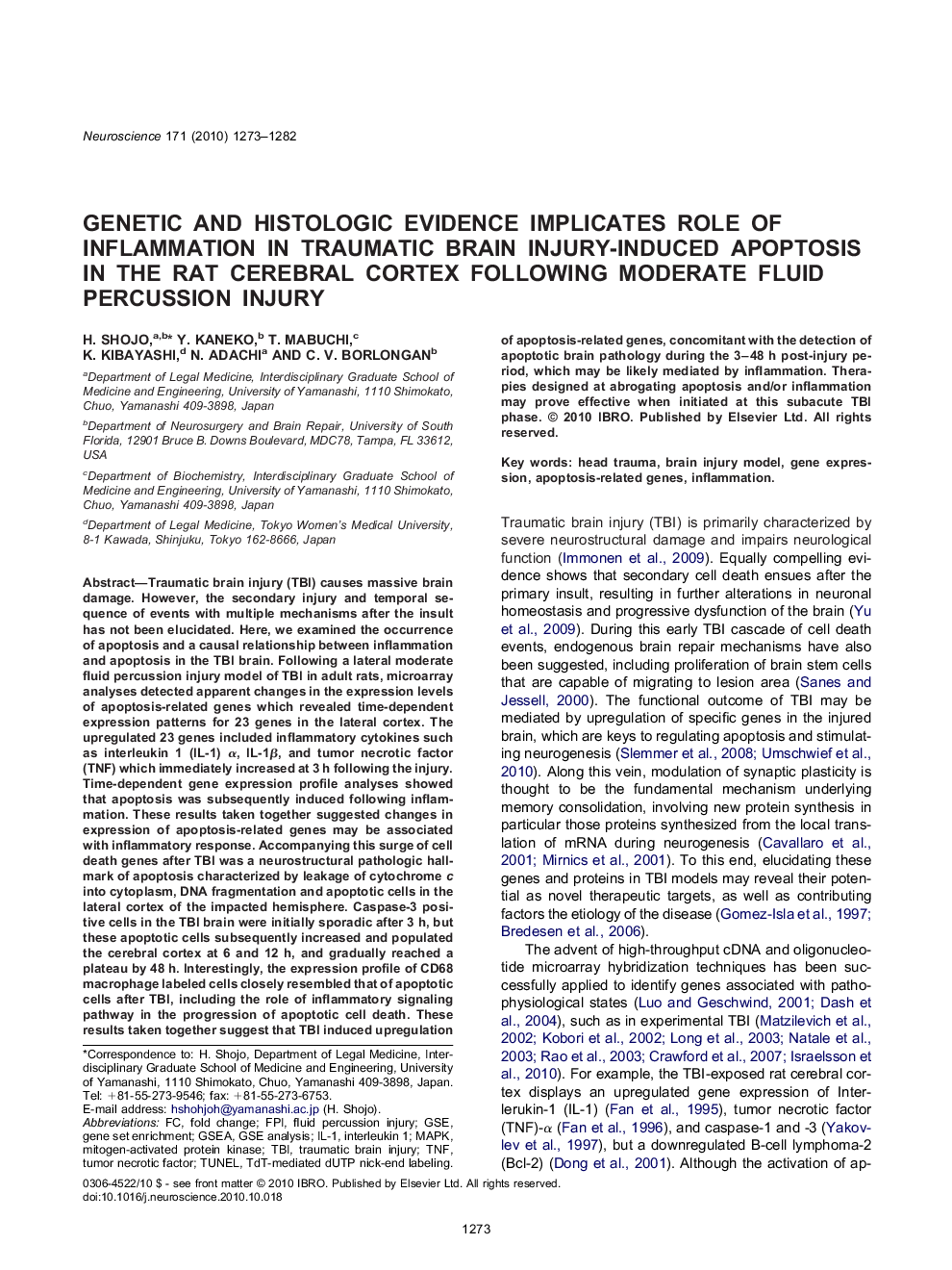| کد مقاله | کد نشریه | سال انتشار | مقاله انگلیسی | نسخه تمام متن |
|---|---|---|---|---|
| 4339201 | 1295738 | 2010 | 10 صفحه PDF | دانلود رایگان |

Traumatic brain injury (TBI) causes massive brain damage. However, the secondary injury and temporal sequence of events with multiple mechanisms after the insult has not been elucidated. Here, we examined the occurrence of apoptosis and a causal relationship between inflammation and apoptosis in the TBI brain. Following a lateral moderate fluid percussion injury model of TBI in adult rats, microarray analyses detected apparent changes in the expression levels of apoptosis-related genes which revealed time-dependent expression patterns for 23 genes in the lateral cortex. The upregulated 23 genes included inflammatory cytokines such as interleukin 1 (IL-1) α, IL-1β, and tumor necrotic factor (TNF) which immediately increased at 3 h following the injury. Time-dependent gene expression profile analyses showed that apoptosis was subsequently induced following inflammation. These results taken together suggested changes in expression of apoptosis-related genes may be associated with inflammatory response. Accompanying this surge of cell death genes after TBI was a neurostructural pathologic hallmark of apoptosis characterized by leakage of cytochrome c into cytoplasm, DNA fragmentation and apoptotic cells in the lateral cortex of the impacted hemisphere. Caspase-3 positive cells in the TBI brain were initially sporadic after 3 h, but these apoptotic cells subsequently increased and populated the cerebral cortex at 6 and 12 h, and gradually reached a plateau by 48 h. Interestingly, the expression profile of CD68 macrophage labeled cells closely resembled that of apoptotic cells after TBI, including the role of inflammatory signaling pathway in the progression of apoptotic cell death. These results taken together suggest that TBI induced upregulation of apoptosis-related genes, concomitant with the detection of apoptotic brain pathology during the 3–48 h post-injury period, which may be likely mediated by inflammation. Therapies designed at abrogating apoptosis and/or inflammation may prove effective when initiated at this subacute TBI phase.
Research Highlights▶TBI-induced apoptosis was preceded by alterations in the expression of various apoptosis-related genes, and the histopathological progression of apoptosis, involving DNA fragmentation and macrophage infiltration, was possibly mediated via the inflammation-signaling pathway during the early period after trauma.
Journal: Neuroscience - Volume 171, Issue 4, 29 December 2010, Pages 1273–1282